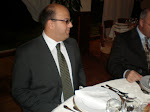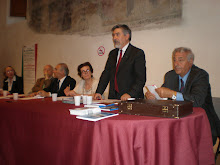|
edited by Riccardo Alcaro and Sonia Lucarelli
NATO Allied Command Transformation, April 2013
Post-Cold War NATO faces a number of challenges, particularly concerning its tasks and capabilities. Allies have tried to address the capability issue by agreeing on a smart defense agenda aimed at offsetting the nefarious effects of dwindling military budgets – which have been savagely cut in Europe – through joint development of military platforms and capabilities. Meanwhile, the tough decade-old experience of Afghanistan has spurred NATO strategists into a rethinking not only of the capabilities needed to better cope with the 21st century threat environment, but also of its role in a world where power is increasingly exercised by multiple players. NATO’s focus on partnerships – with other countries, multilateral organizations and non-state actors – reflects the growing awareness that security governance today requires a mix of military and non-military assets and cannot but take place through enhanced cooperation between key security players. These were the main topics of discussion at the second Academic Conference sponsored by NATO Allied Command Transformation (ACT) in its effort to facilitate dialogue among NATO and the academy. As in 2011, the conference took place in Bologna (Italy), and was jointly organized by IAI in cooperation with the University of Bologna and ACT. This publication collects a revised version of contributions presented at the conference.
| |
|
Introduction, R.Alcaro and S.Lucarelli I. Smart Defence and the Capability Challenge 1. NATO's Smart Defence Agenda: From Concepts to Implementation, B.Giegerich 2. Smart Defense and the Capability Challenge: Why NATO Needs the EU,D.Keohane 3. Report on Working Group I, C.M.O'Donnell II. Afghanistan and NATO after 2014 4. NATO's Training Mission in Afghanistan: A "Smart Approach" to Change?, T.Flockhart 5. NATO's Multiple Balancing Acts: Lessons from the Operation in Afghanistan, R.Alcaroand A.Marrone 6. Report on Working Group II, F.Catapano III. NATO's Partnerships in North Africa and the Middle East 7. The Four Stages of NATO's Partnership Frameworks: Rethinking Regional Partnerships with the Middle East and North Africa, G.Aybet 8. Prospects for NATO Partnerships,J.Reynolds, D.Bedford, S.Adorf, T.Cheasley 9. Report on Working Group III, E.Alessandri |
| Forward to a friend |








































































































Nessun commento:
Posta un commento